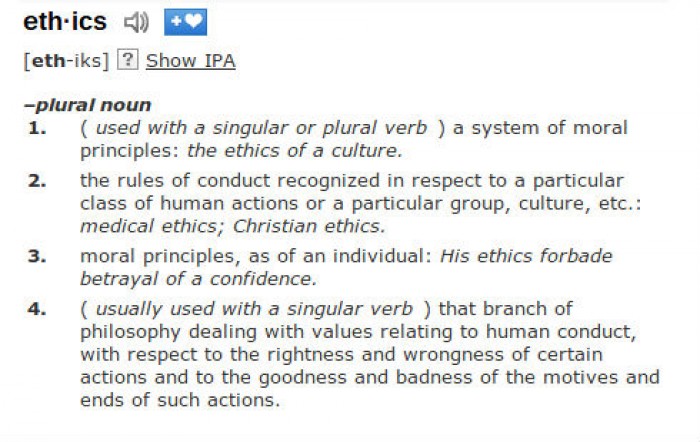
By now you’ve probably seen every blog post out there about Steve Jobs and his medical leave. It’s been a complicated situation since being CEO brings with it obligations that a private individual doesn’t have. On the other hand, Steve Jobs is a private man and deserves the chance to hopefully recover in peace. We could debate this all day, but Businessweek’s resident ethics expert has stepped into the fray with a fantastic and clearly outlined explanation of both sets of obligations (that of a private individual as well as that of the leader of a major corporation who answers to stockholders).
Dr. Weinstein’s best point, in my opinion, is #4:
4. Jobs’ medical condition, his treatment options, and his prognosis all fall within the rightful purview of stakeholders. Reality TV shows, entertainment blogs, and 24-hour cable news networks have all but obliterated the line between one’s professional and personal lives. The line was thin to begin with: Rock Hudson and Freddie Mercury were both robbed of dignity in their final days by a ruthless press corps that speculated (correctly, as it turned out) that each was dying of HIV/AIDS.
Celebrity alone should not carry with it public access to the intimate, intensely personal details of someone’s private life. But Steve Jobs’ celebrity fits into a different category from that of entertainment stars. His health can and does affect how well his company functions. Someone as hands-on as Jobs may not be able to fulfill his duties while wrestling with a life-threatening illness.
Jobs’ current leave of absence for medical reasons is his third one in seven years. He announced he had pancreatic cancer (for which he underwent surgery) in 2004, and in 2009 he received a liver transplant.
He’s absolutely right — there’s what we want to hear because news runs 24/7, trends on Twitter, and otherwise fuels our lives, and there’s what we SHOULD know because it actually impacts our lives in a specific way. It’s a skillful way to make that distinction and I think it cuts to the heart of the balance Apple has to walk between privacy and disclosure.
This is a fairly messy issue, though, and while Apple is a very high-profile example, they’re not the only company that’s faced it. And issues like this are the most fascinating in ethics; it’s not a matter of any side being specifically right or wrong, and all the parties involved have genuine claims to being right. The heart of the debate becomes a case of which trumps the other; privacy or right to investment transparency?
What’s your take on this situation? Should Steve Jobs have to disclose anything, or can he invoke his right to be a private citizen and disappear for a while? Join in the debate in the comments!